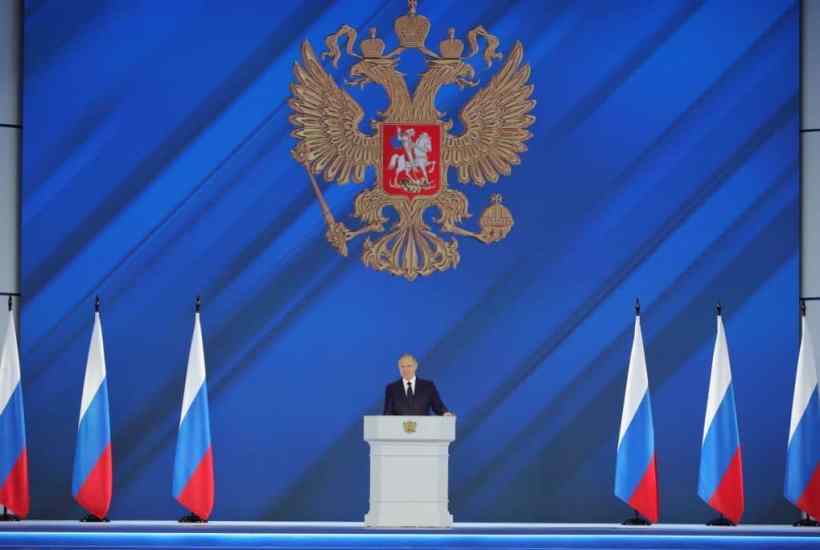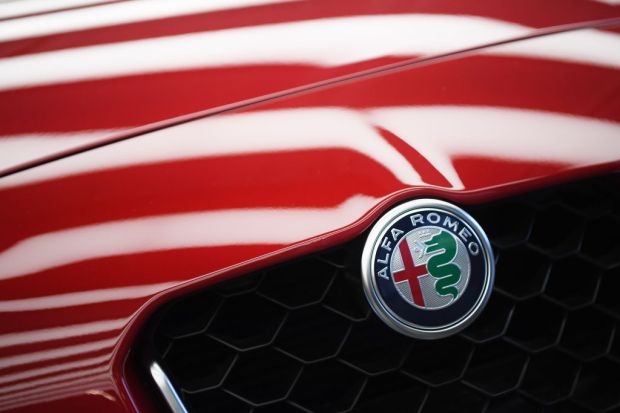Everyone is calling the conflict in Ukraine Putin’s war and insisting that it has nothing to do with the Russians themselves.
The nightmare would end – they tell us – if only Vladimir Putin were to disappear in a coup. They used to say the same thing not only about Adolf Hitler but also Benito Mussolini. Yet both the Fuhrer and the Duce would have been as powerless as the speakers at Hyde Park Corner if they had not enjoyed the willing consent of a critical mass of Germans and Italians.
Meanwhile devout Catholics like my Italian wife recite Psalm 109 – the one used to curse the outstandingly evil for whom forgiveness is not required – and which urges the Lord to assassinate Putin asap and to ‘Set thou a wicked man over him: and let Satan stand at his right hand.’
In my view, however, even as a Catholic convert, she is wasting her time if she stops at Putin.
This war may be Putin’s fault but it is not Putin’s war. It is Russia’s war.
When a revered columnist at the Times writes that the world has been brought to the edge of the abyss ‘Literally all because of one man’ he is literally guilty of wishful thinking.
It may well be true that thanks to blanket censorship and brutal suppression ‘most Russians’ – as they keep telling us – are Putin’s ‘dupes and hostages’. But so what? The Russians support Putin and his war in their tens of millions because it is their war.
Russians have never been patriotic but always nationalistic – especially when communist, as the rebel left-winger George Orwell blasphemously showed in his 1946 essay ‘Notes on Nationalism’ – and thus intent not on defending their culture and country but on imposing it.
And Russians believe that Ukraine is part of Russia.
CNN commissioned an opinion poll whose disturbing results it broadcast on 23 February – the day before the invasion.
It was an online poll of just over 1,000 Russians by the London based market research company Savanta ComRes whose clients have included the BBC, the Daily Mail and ITV.
Not even half those polled (43 per cent) think that the use of force by Russia to re-unite Russia and Ukraine is wrong. More than a third (36 per cent) think it is right and the rest are unsure.
Yet half (50 per cent) think the use of force to stop Ukraine joining Nato is right and only a quarter (25 per cent) think it is wrong. And half (50 per cent) think it is right to use force if Russia is threatened by ‘foreign activity’.
Two thirds (64 per cent) think Russians and Ukrainians are one people and getting on for three quarters (71 per cent) have a positive rather than negative view of the old Soviet Union.
Putin’s approval rate among Russians is 71 per cent compared to 63 per cent in November, according to Moscow’s Uri Levada Analytical Centre – an independent NGO regarded as trustworthy by western Russia experts.
Who among us is honestly in a position to state with certainty that such polls are meaningless?
What so many are saying about Putin today Winston Churchill said about Mussolini in a radio broadcast to the Italian people on 23 December 1940: ‘One man and one man only was resolved to plunge Italy… into the whirlpool of war.’
But it was not really true. Mussolini only lost the consent of the Italians when he began to lose battles.
As he himself told an early biographer. ‘I did not invent fascism I extracted it from the subconscious of the Italian people.’
His handbook was La Psychologie des Foules, by the French anthropologist Gustave Le Bon, who defined the modern age as the era of the crowd – and pointedly not the era of democracy.
In the new era, the crowd holds absolute power but is powerless without a charismatic leader in whom it is willing to place its faith. Faith is the key to this relationship because if the leader loses the faith of the crowd he loses his power.
In Mussolini’s day, the purest expression of this dialectical relationship between leader and crowd was when the leader delivered a speech to the crowd in piazza from a raised platform or balcony. Today’s equivalent is Twitter.
Sanctions on Russia are causing real hardship – trade has collapsed, the stock market remains closed, the rouble has plummeted by 30 per cent against the dollar, and to tame rampant inflation the Bank of Russia has doubled interest rates to 20 per cent. There are huge queues at cash machines.
Yet any economic suffering may well increase support for Putin, at least in the short term, as Russians blame Americans and Europeans.
It was only his failure in war that caused Mussolini to lose power and in the end his life as well. Two weeks after the Allied invasion of Sicily in July 1943 he was deposed in a coup– a coup that only imminent military defeat made possible.
But today’s allies have no intention of putting boots anywhere near Ukraine let alone Russia so there is little chance of Putin failing in war – unless he attacks the West and all hell breaks loose – or, in the longer term, his forces get bogged down in a guerrilla war they cannot win.
In April 1945, Mussolini and his mistress Clara Petacci were shot by Communist partisans after their capture at Dongo on Lake Como in a convoy of vehicles that was en route for Switzerland. The partisans then drove the corpses, and those of other fascist leaders who had been in the convoy, back to Milan where they dumped them in Piazzale Loreto. A huge crowd defiled the corpses which were then strung up from the girders of a petrol station upside down.
The Duce’s estranged daughter, Edda, whose husband Galeazzo Ciano had been one of those who deposed Mussolini and who later he allowed to be shot for treason, heard the news of her father’s death on the radio in Switzerland where she was in exile: ‘You can only hate someone you have loved… It was the final act of love by the Italian people for him.’
In the post war years, the campaign to blame everything on one man went into overdrive in order to exonerate the Italians of blame. Mussolini was imposed on Italians – according to this new narrative – and it was forgotten that for years the Duce and fascism had been idolised worldwide as offering an exciting alternative to capitalism and communism. The number of Italians who had been antifascists and resistance fighters were vastly exaggerated – especially communist ones – as were their heroics and their role in the liberation of Italy which from a military point of view was minimal.
So maybe the reason we are always so determined to blame a single human being for evil – Putin in the case of Ukraine – is because the alternative, blaming the Russians, is just too awful to deal with.
Got something to add? Join the discussion and comment below.
Get 10 issues for just $10
Subscribe to The Spectator Australia today for the next 10 magazine issues, plus full online access, for just $10.



















Comments
Don't miss out
Join the conversation with other Spectator Australia readers. Subscribe to leave a comment.
SUBSCRIBEAlready a subscriber? Log in